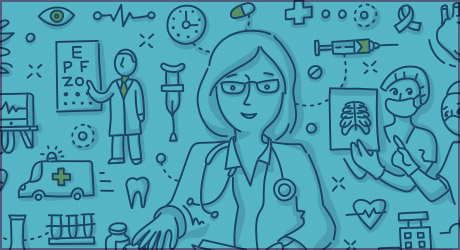
Why Choose Us?
Taking good care of your heart can help reduce your risk of heart disease and help you live a long and healthy life. The heart care team at Northwest Cardiology is with you every step of the way—from preventive screenings and lifestyle support, through minimally invasive treatments and life-saving emergency care.
- Our cardiologists are members of the medical staffs at Northwest Medical Center, Oro Valley Hospital, Northwest Medical Center Houghton and Northwest Medical Center Sahuarita
- We, working in conjunction with Northwest Healthcare, provide a complete spectrum of cardiac services, including emergency care, diagnostic and interventional cardiology, cardiac surgery and rehabilitation (one of only two certified programs in Tucson)
- From diagnosis to treatment, Northwest Cardiology is your partner in heart health
Our services include:
- Advanced diagnostic and imaging technology to find heart disease early, when it's most treatable
- Cardiac Catheterization
- Open heart surgery
- Transaortic Valve Replacement (TAVR)
- Comprehensive heart failure care
- Specialized treatment for heart rhythm disorders (AFib)
- Heart and vascular rehabilitation that combines education, support and exercise therapy
Heart Healthy Resources

A Woman’s Risk for Heart Disease is Different: Here’s What You Need to Know
Heart disease is a big issue in the United States for both men and women alike. But some risk factors are more unique to women.
Read more »

Is High Blood Pressure Considered Heart Disease?
Finding out you have high blood pressure can be worrisome if you aren’t sure what your numbers mean or what to do about them. Discover how high blood pressure affects your heart.
Read more »

How Does Smoking Affect Your Heart?
Smoking’s impact reaches far beyond your lungs, harming nearly every other organ in the body. Get the specifics on how smoking can influence your heart’s health.
Read more »

Why Your Heart Wants You to Pay Attention to Your Cholesterol
Your liver makes cholesterol in your body, but you also get cholesterol from eating certain foods. Find out how the wrong kind of cholesterol can impact your heart.
Read more »